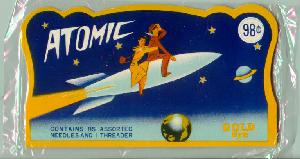
![]()

|
|
 |

|
History 110 is the second semester of a two-semester introduction to United States history. (You do not need to have taken the first half of US history to take History 110.) This course surveys the history of the United States from Reconstruction to the present. The emphasis will be on the rise of modern industrial America, the varied responses to industrialization, the emergence of the US as a world power, the impact of the Cold War, the turbulent 60s,and the struggle over resources and power in twentieth and twentyfirst-century America.
| Eric Foner, Give Me Liberty, Vol. 2, Seagull 6th edition | |
| Eric Foner,Voices of Freedom, Vol. 2, 6th edition | |
| Kathy Peiss, Cheap Amusements | |
| A few readings may also be available online and/or on Blackboard. |
Grades will be based on a midterm, a final exam, textbook quizzes and assignments, a 6 page research paper, and discussion section. Both exams are essay in form.
Option 1:
|
Midterm 1: 25% | |
Inquisitive: 10% |
|
Paper: 20% |
|
|
|
|
Discussion Section.: 15% |
Please
be aware that the major themes and ideas that comprise my exams are generally
drawn from my lectures so attendance is critical if you wish to do well in this
course. Attendance will also affect class participation grade because if you
are not in class, you cannot participate. Readings, both from the text and the
other assigned books, are not extra or optional assignments. The readings
complement, but do not replace, my lectures and are there to help you better
understand major themes and issues raised in class.
One key to success in this course is to keep up with the reading
assignments.
Class Etiquette: Please arrive on time and do not leave before the end of class unless you inform me prior to class. Also, please be sure cell phones are off or on silent. This also means no text messaging in class. Finally, laptops can only be used to take notes.
Student Learning Goals:
1. Students will understand and analyze the major themes and issues in the modern United States history and the historical forces that have shaped them.
2. Students will investigate the racial and cultural diversity of the United States and the struggles over power and freedom and how these have shaped the nation.
3. Students will explore and critically analyze both primary and secondary source material.
4. Students will probe the nature of historical interpretation.
5. Students will undertake historical research using primary source material and improve writing skills.
Academic Honesty: The University adheres to a strict policy prohibiting cheating and plagiarism. Examples of academic dishonesty include but are not limited to:
The California State University system requires instructors to report all instances of academic misconduct to the Center for Student Rights and Responsibilities. Academic dishonesty will result in disciplinary review by the University and may lead to probation, suspension, or expulsion. Instructors may also, at their discretion, penalize student grades on any assignment or assessment discovered to have been produced in an academically dishonest manner.
“Students agree that by taking this course all required papers may be subject to submission for textual similarity review to Blackboard’s Turnitin.com for the detection of plagiarism. All submitted papers will be included as source documents in the Turnitin.com reference database solely for the purpose of detecting plagiarism of such papers. You may submit papers in such a way that no identifying information about you is included. Another option is that you may request, in writing, that your papers not be submitted Turnitin.com. However, if you choose this option you will be required to provide documentation to substantiate that the papers are your original work and do not include any plagiarized material.”
Accommodations: If you are a student with a disability and are in need of accommodations for this class, please contact Student Ability Success Center at (619) 594-6473 as soon as possible. Please know accommodations are not retroactive, and I cannot provide accommodations based upon disability until I have received an accommodation letter from Student Ability Success Center.
Student Privacy and Intellectual Property: The Family Educational Rights and Privacy Act (FERPA) mandates the protection of student information, including contact information, grades, and graded assignments. I will use Blackboard to communicate with you, and I will not post grades or leave graded assignments in public places. Students will be notified at the time of an assignment if copies of student work will be retained beyond the end of the semester or used as examples for future students or the wider public. Students maintain intellectual property rights to work products they create as part of this course unless they are formally notified otherwise.
Religious observances: According to the University Policy File, students should notify the instructors of affected courses of planned absences for religious observances by the end of the second week of classes.
Section 1&8: |
John Gove |
AL562 |
|
|
Section 2&7: |
Christina Rhein |
AL560 |
||
Section 4&5: |
Albert Contreras |
AL560 |
||
Section 3: |
|
AL562 |